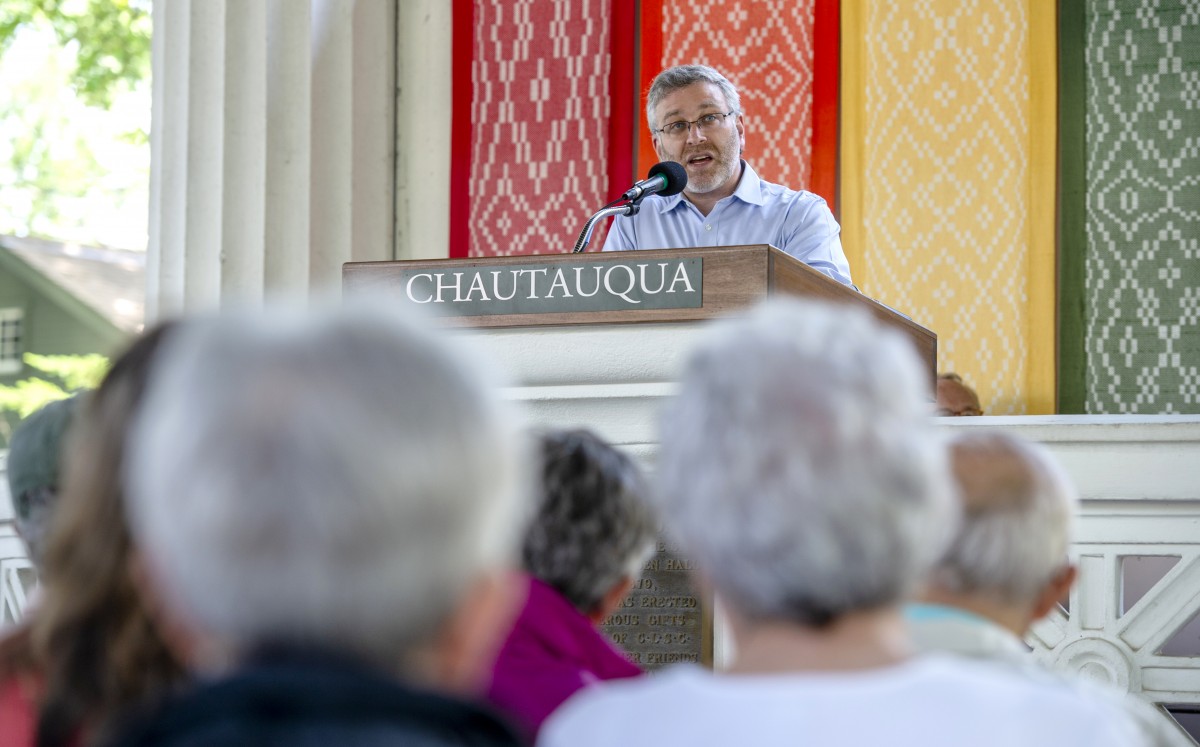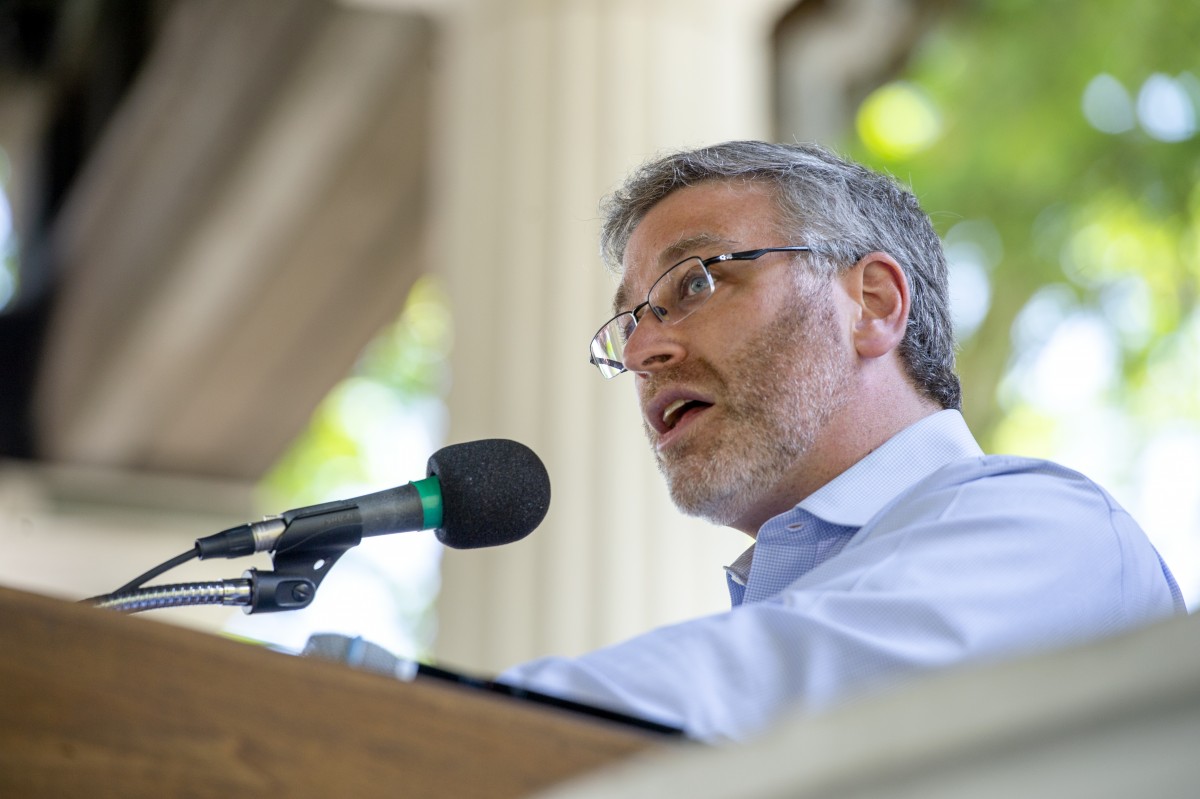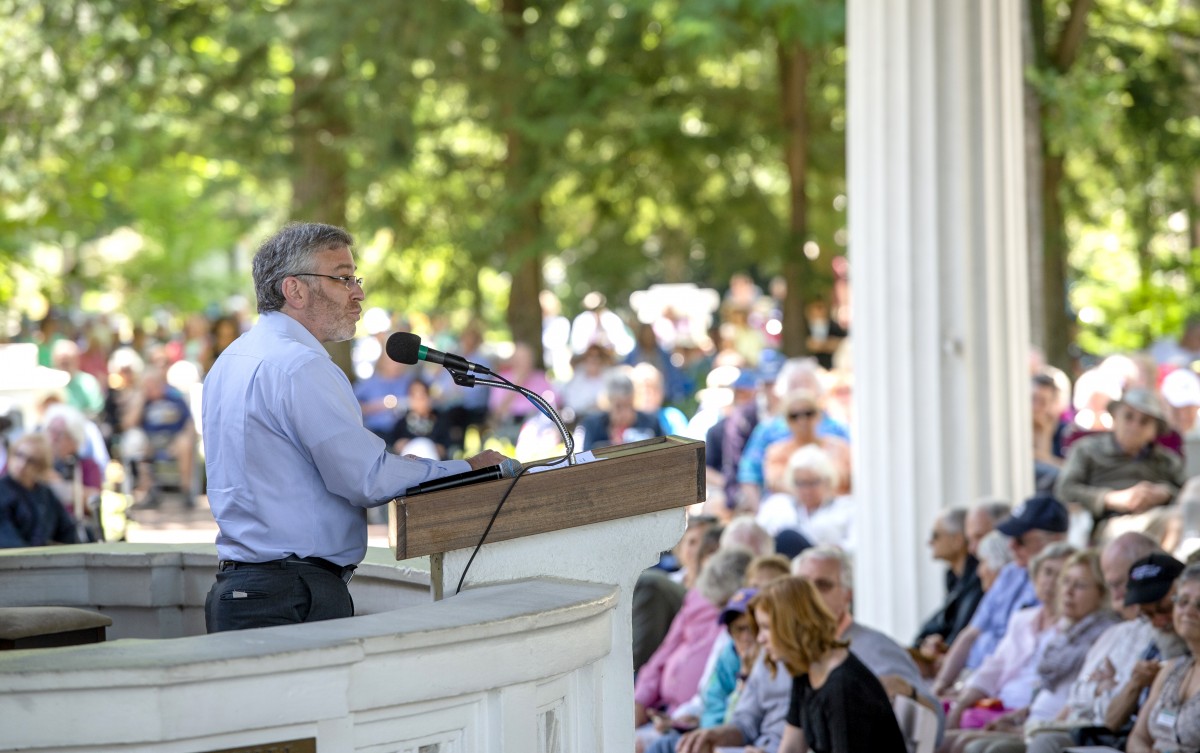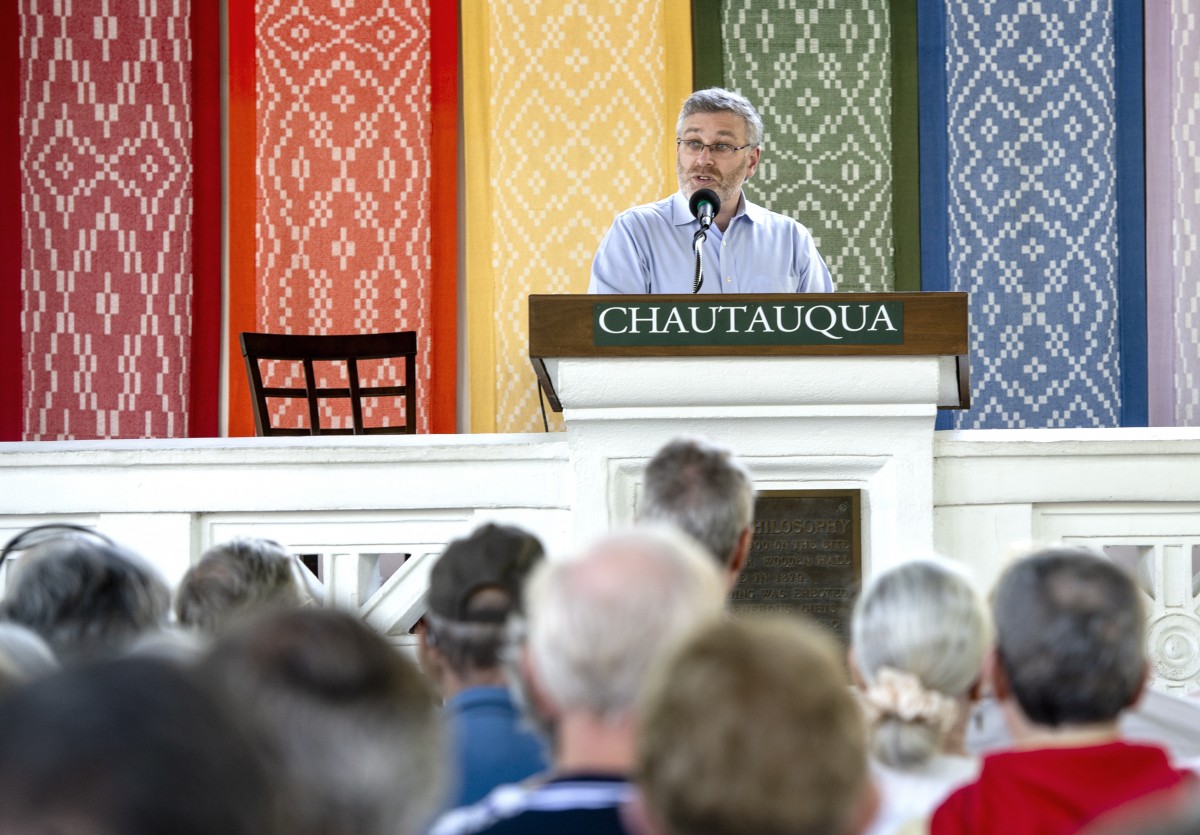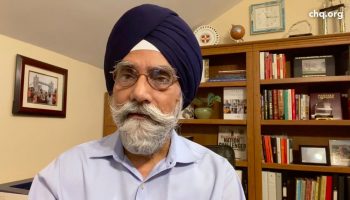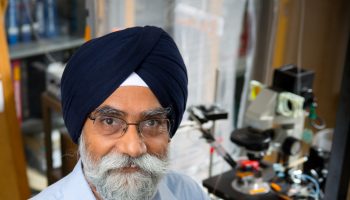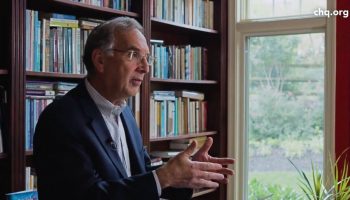In the second edition of the “Interfaith Friday” series, the Rt. Rev. V. Gene Robinson, Chautauqua’s vice president of religion, moderated a series of questions about Humanistic Judaism for Rabbi Adam Chalom at 2 p.m. Friday, July 6, in the Hall of Philosophy.
Chalom, a rabbi of Kol Hadash Humanistic Congregation in Chicago and the dean for North America of the International Institute for Secular Humanistic Judaism, described Humanistic Judaism as a secular alternative to other branches of Judaism. He adopts the cultural and historical experiences of the Jewish people while embracing a human-centered philosophy focused on the “here and now.”
What follows is an abridged version of Chalom’s conversation. Chalom and Robinson’s remarks have been condensed for clarity.
From where you sit in your tradition, why should we be moving in an interfaith direction either here at Chautauqua or in the world?
Chalom: To put it simply, speaking is better than shooting. Dialogue is better than persecution. Certainly from a humanist perspective, I think accepting humanism on the spectrum of belief is important because in too many places in the world, humanism is disapproved (of) at best and (with) a death sentence at worst. There are believers in Bangladesh, in Saudi Arabia, who are being caned and attacked simply for saying what they believe.
We take it for granted that you can be a heretic in a public square in America, but it is not the case in other parts of the world. But even in the United States, there are certain social indignities.
Periodically they poll the American population asking, “Who would you be willing to vote for for president?” and certain groups have been moving up on that list, and that is good, but second to the bottom are atheists. Only 57 percent of people are willing to vote for an atheist, which means 43 percent would not even consider the possibility that this person could hold the highest office because people often think that humanists and secular people have no values, that there is something empty.
When you come to the metaphorical interfaith table, what gifts do you bring as a humanist to that table?
Chalom: I think a couple of values. One is that we can provide an example to people that you can be a good person independent of your theological belief. So, if there are people here who do not know what it is like to live a secular life, find someone you know who is secular and ask them how they do it.
Chances are, they are good citizens, they pay their taxes, they vote and they participate in their community. Secondly, I love the fact that humanism focuses on human needs and consequences as a basis for good and evil. All too often we have principles that were formed in religious traditions thousands of years ago that may or may not be appropriate for our values and lifestyles today. Your own experience of dealing with rules written thousands of years ago leads to real-life consequences for people for who they are, who they love, (and) shows us that something has to give. If we were willing to put more weight on human needs and human consequences here and now, then maybe some of those older rules would have to give and be more responsive to where people are.
I think it is also important to learn how to live without an end. Sometimes, we don’t know if there is going to be a happy ending. Sometimes there is no “why,” no “Why did I get cancer?” or “Why did this 3-year-old child get stabbed to death at a birthday party?” Terrible things happen in the world, and sometimes there is no “why.” We have to learn to live with an “I don’t know.”
The last point I wanted to make is that we offer the courage to change. We know that even in traditional Jewish sources, you are supposed to ask forgiveness from other people before you can go to God and ask forgiveness. We changed the second step; instead of moving above and beyond forgiveness, aim to look inside of yourself. Be able to forgive yourself for things you have done wrong, and then you will be able to move forward. It is still a kind of atonement, but it is an atonement between people and within oneself as opposed to above and beyond.
And what gifts do you suspect other traditions have that you benefit from?
Chalom: Religion meets a lot of human needs and often non-rational human needs. Humanists can get really caught up on the rational, the analytic, the scientific, (instead of ) needs for beauty, inspiration, community, a sense of tradition and ritual, the power of the primitive. There is something that you get from lighting a candle that you don’t get from flipping a switch. There is something to be said for that primitive style that connects us to our human roots, to imagine ourselves in the footsteps of our ancestors and to feel that emotional outlet of non-rational activities.
Do you have any sacred texts or holy teachings that are telling you that yours is the one true religion?
Chalom: There are certainly plenty of books out there that support that idea of how religion is wrong and backward, and there is a secular tradition to assume that we are right and everyone else is wrong. After all, one of the older terms of the 19th century was “free thinker.” Well, who is everyone else? I do believe that scientific knowledge and scientific theories explain the world and human nature better than creationism or the fall in the garden. We have more evidence from what I understand about that. Do I think I am right and other people are wrong? Well, that is an honest disagreement, and I think that real interfaith dialogue is not only about what we agree on, but also sharing when we disagree.
Do you have extremist practitioners of humanism?
Chalom: Yes, we do. They tend not to blow themselves up, but they are certainly out there in a rhetorical fashion. We have one organization now who likes to call themselves the “The Marines of the Free Thought Movement.”
They are the ones who show up and kick butt and fight all the time. They are the ones who are angry all the time. There are times that you need Marines to get your message out, but there are also times that you need diplomats. You need both. You need allies of good will. There are times we do have to reject our extremists in any religious tradition, if only to preserve the lines of communication with other religious traditions that we want to work with on issues of common cause.


